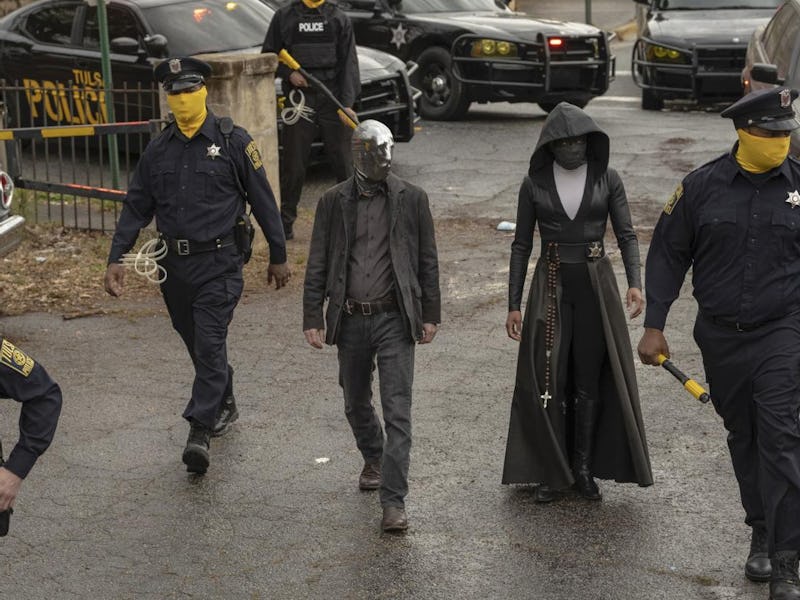You need to watch HBO's best show of 2019, now more than ever
But we shouldn't have to learn history from comic book shows.

TV storytelling can teach us so much. From ASMR to complex ethical philosophy, what is usually seen as a totally passive activity can slowly make you smarter. Television might be an excellent tool to expose people to topics they might not be interested in, it also has another use: filling in essential information untold in our education system.
That's what Watchmen did only last year, and now that we're seeing nationwide protests against racism in the police system, the way HBO included an untold chapter of Black American history needs to be reappraised.
Watchmen opens not on Dr. Manhattan or even its new main character, Angela Abar, but instead cuts straight to Tulsa in 1921. That's not a very meaningful date for most Americans, but the racist massacre shown on screen is so horrific, it feels like it must be fiction.
It isn't. The Tulsa Massacre was all too real, and it forms the seed for much of the collective trauma seen in Watchmen: racial injustice and police brutality are themes throughout the entire series.
The opening shot of Watchmen, depicting the Tulsa Massacre
An entire episode of Watchmen, "This Extraordinary Being," is dedicated to Angela experiencing her grandfather Will's memories as a cop working in New York in 1938. Through his eyes, Angela faces brutal racism, including an attempted lynching at the hands of a secret white supremacist group called Cyclops that counts the police among its members. This trauma prompts Will to become Watchmen's first superhero, a vigilante called Hooded Justice, turning the hood and noose used against him into his disguise.
While racial injustice is a plot element in Watchmen, it's not by any means fictional. The white supremacist organization Cyclops is organized and includes multiple generations of police officers and politicians. They're the main antagonist force in the show, using fictional technology to incite a race war, but it's not much of an exaggeration of the actual inherent biases buried deep in our policing system.
Watchmen is allegorical, but not fantastical. Even the German propaganda letter used in another episode is based on reality.
Will Reeves as Hooded Justice
While for the Black community, The Tulsa Massacre and the rioting on Black Wall Street are an essential part of history, they're rarely included in history textbooks at all. And in 1921, news of the event was effectively squashed. It's important that Watchmen gave The Tulsa Massacre attention and used its own platform to spread awareness, but it shouldn't have to. While fictional television is an excellent tool to educate, it shouldn't be a show's responsibility to teach history that should be common knowledge.
When Watchmen first aired, it garnered a lot of criticism for portraying police officers as its heroes. This, again, was a storytelling tool, playing into people's inherent trust of the police before slowly revealing the corruption within the system. In today's context, this inherent trust is strained, making it a whole new viewing experience. The protagonists, however, are still police officers, and those critiques may hold some weight to how we perceive them.
Collective trauma is another theme in Watchmen. From Angela witnessing her grandfather's life to Lady Trieu infusing her mother's memories into her daughter, the generational passing on of history and injustice shows up time and time again. How, exactly, is that sharing of history supposed to be reflected in real life if so many stories like The Tulsa Massacre go untold?
While a rewatch of Watchmen could never really be considered escapism, the story has suddenly taken on an entirely new level of relevance — and not just because everyone seems to be wearing a face mask. The racism never went away, but there's a new amount of attention being brought to it. A television series may not be the most pressing thing in need of our attention, but it's a well-crafted story encased in a world only slightly heightened from our own that could provide inspiration, if not education.